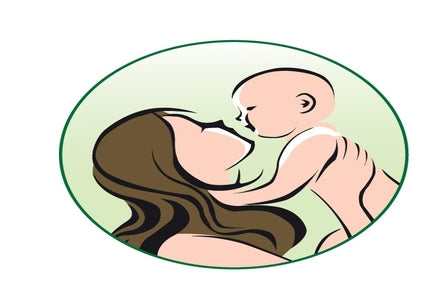
For those of you who are pregnant or have children, have you noticed how the term “DHA” keeps popping up on infant formula? Every mother should know the importance of DHA since it is vitally important for fetus, infants and children. DHA and EPA are the two most beneficial omega-3s. While DHA supports the brain, eyes and central nervous system; EPA supports the heart, immune system and inflammatory response. DHA is found in every cell in our bodies and proven to be essential for both neurological and early visual development. Babies’ brain grows at a swift rate throughout the first few years of life. Babies born to mother with insufficient DHA intake tend to have relatively higher health problems including high risk of eye and brain damage. Studies revealed that babies have better mental and visual function with higher DHA level. This proves that DHA is the vital nutrient for babies and pregnant women.
Since DHA is an essential fatty acid, which our body cannot synthesize, it is necessary to obtain it from the food we eat. Adults consume DHA from the diet; unborn babies rely on their mothers to get DHA during pregnancy. DHA deficiencies starting in childhood cause high risk of eye and brain damage. Research showed that it’s important for mothers to take DHA supplements during pregnancy because their kids tend to score higher on intelligence tests at four years of age than children of mothers not taking DHA supplements.
For mothers themselves, research also showed that women who take DHA supplements during the last trimester of their pregnancy helps prevent preterm labor and are less likely to suffer from depression after giving birth. Therefore, DHA is the best nutrient for both pregnant women and unborn babies. So where can pregnant women get the optimal daily doses of DHA? Deep sea fish such as salmon, tuna, herring, and sardines are some natural dietary sources of DHA, but pregnant and breastfeeding women need to pay extra attention to the purity because of fish contamination. If one chooses to take DHA supplements, make sure the fish oil have been refined through molecular distillation to remove any remaining toxins like mercury or lead that is absorbed from the polluted ocean waters, in order to prevent causing any harm to your babies.
If mothers are vegetarian, or want to lower the possible risk of fish contamination, they may consider DHA supplements derived from algae rather than fish oil such as “life’s DHA”, a vegetarian source of DHA directly from microalgae. It is the only brand of DHA currently added to infant formula that is approved by FDA. Taking life’s DHA could eliminate the risk of mercury or ocean contamination, fishy aftertaste and suitable for vegetarians. Mothers will be getting DHA just as the fish oil does.
So what is the optimal intake of DHA during pregnancy or breastfeeding? According to the studies reviewed in a workshop by the National Institute of Health and the International Society for the Study of Fatty Acids in the U.S., 300 mg of DHA is recommended for pregnant and breastfeeding women. Before buying Omega 3 supplements, read the label and study the product purity since quality may vary with different brands. Health Tips: Pay attention to the purity of DHA supplements and the actual DHA amount. Quit smoking and drinking. Maintain a healthy diet with enough nutrients.
Healthy Tips:
- Be aware the purity of DHA supplements
- The actual DHA amount
- Quit smoking and drinking
- Keep a healthy diets and enough nutrients


